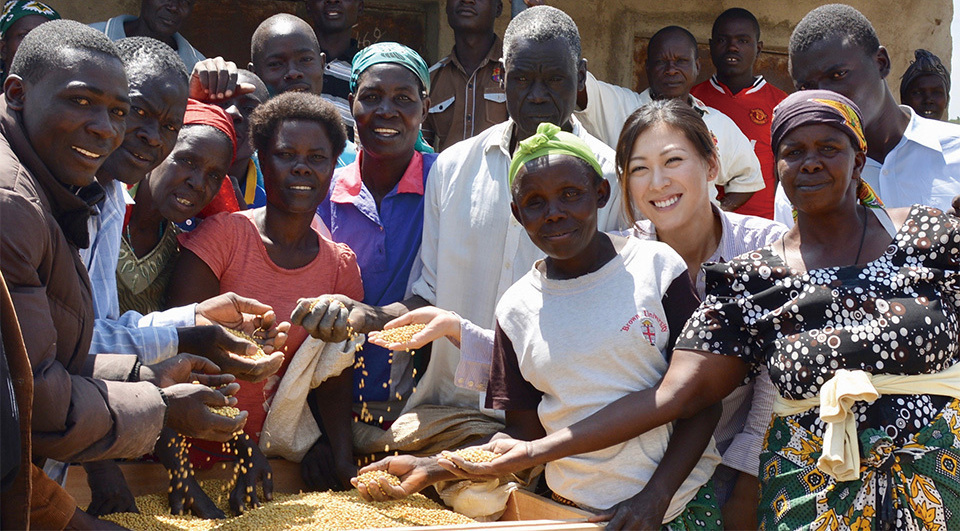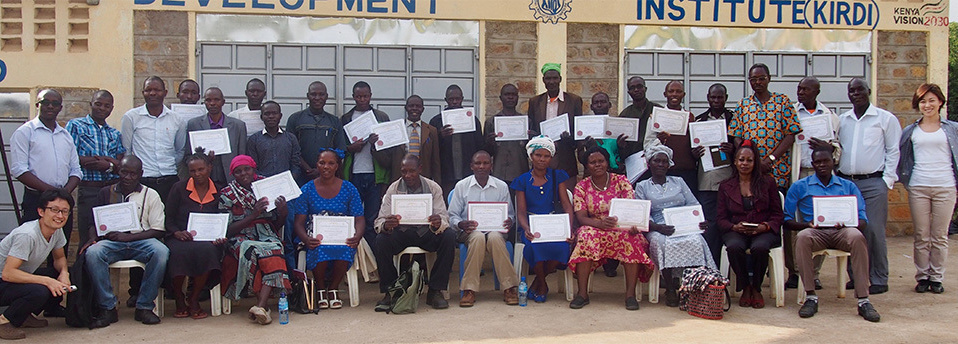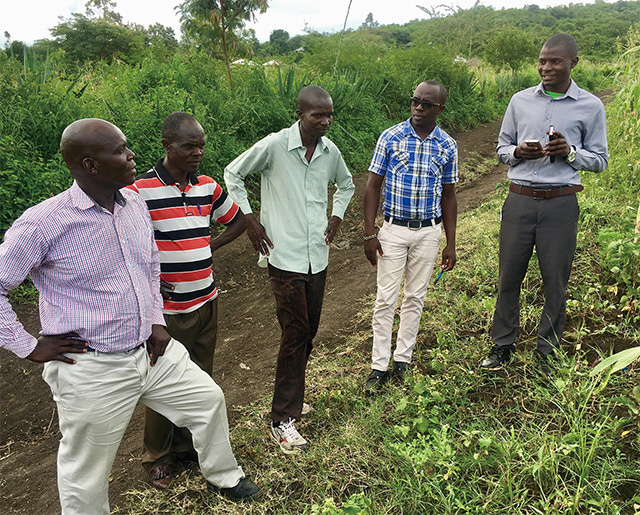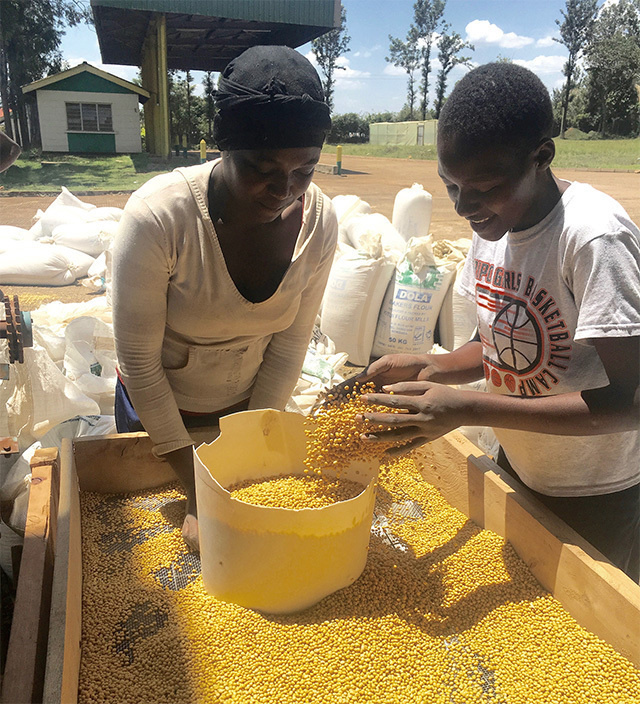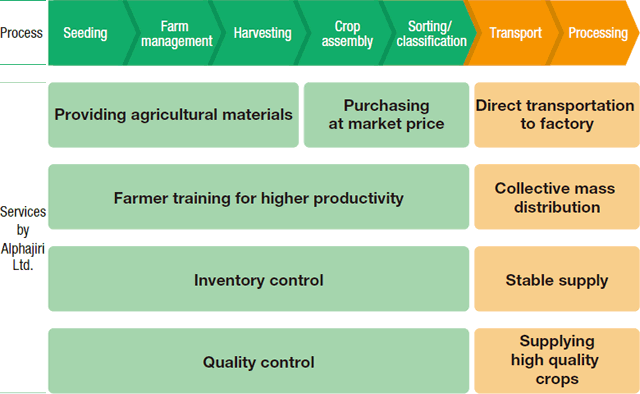Whenever East Africa experiences a drought, there is a decrease in the harvest of corn—the country’s main staple food—which drives prices up and threatens the livelihoods of the people. To help stabilize the food supply, the Government of Kenya has turned its focus to the soybean, a nutritious protein source and a crop that can be harvested in a short period of time. In 2011, funded by the Japanese government, the Kenya Industrial Ministry together with the United Nations Industrial Development Organization (UNIDO) built three soybean processing factories to promote the spread of locally produced and locally consumed soybeans.
At a meeting held in June 2017, field officer contracts were signed with 23 individuals chosen by each village in Migori County.
Joining these efforts to expand soybean consumption, Tomoko Yakushigawa was posted to Kenya’s Migori County near the border of Tanzania when she became a member of the Japan Overseas Cooperation Volunteers in 2014. “To get more people eating the soybean flour produced at the processing factories that were built, we asked the local women to help us think of ways to use the flour in Kenyan cooking, and we traveled to schools and hospitals to teach the nutritional value of soybeans."
The employees of Alphajiri Ltd. directly educate the field officers who assist the local farmers.
Alphajiri Ltd. derives its name from the Swahili word “Alfajiri,” which means “sunrise.” Yakushigawa explains, “We chose the name to evoke the image of the Kenyan people plowing the fields in the early morning. At the start of a day, the name also reminds me of the reason I came to Africa and ensures that I never forget my original purpose.”
But as her efforts progressed, she realized that there was a fundamental problem: Kenya had almost no established supply chain for raw materials. As a result, farmers were unable to earn a stable and continuous income through the production of farm products.
“For the farmers producing soybeans, finding a market was not easy because of limited information. Even if they found one, it was beyond their capacity to meet the amounts and delivery times that the processors demanded. Meanwhile, processing manufacturers were unable to obtain steady supplies of high-quality soybeans. This situation required a thorough solution that would improve everything from soybean cultivation to consumption.”
In February 2016, Yakushigawa established Alphajiri Ltd. together with three Kenyan supporters as an organization to link farmers with the processing manufacturers and to build a soybean supply chain. Alphajiri Ltd. makes contracts with farmers and comprehensively manages their business transactions. This includes purchasing soybeans produced by the farmers at fair prices, selling them to the processing manufacturers, and everything in between. In addition, to increase harvest output and improve the supply volume of individual farmers, the company loans seeds, fertilizer, etc. and provides technical guidance. To ensure that the farmers receive instructions and advice in a timely manner, the company appoints a field officer in each village. After acquiring cultivation know-how from Alphajiri employees, the field officer makes rounds of a village on bicycle and provides immediate help where it's needed. For example, if the officer finds harvested soybeans exposed to rain, the officer will instruct the farmer on covering the harvest with tarpaulin sheets. It's a detail-oriented system that truly employs the Japanese philosophy of "Kaizen," the pursuit of continuous improvement.
The contracted farmers enjoyed the clear instructions and reliable cash income, while the processing manufacturers widely accepted the stable high quality of the soybeans. At the company's outset, contracts with farmers numbered around 50. Today, there are approximately 2,000 farmers annually contracted to the company. The growth of the business has allowed for more efficiency on a large scale, and now the soybeans can be collected at one location and transported in large volumes at once. With this and other improvements, the business has truly taken off.
Yakushigawa enthusiastically explains, “Our objective is to achieve a yearly total of 10,000 contracted farmers by 2020. In the future, Alphajiri Ltd. will also handle products other than soybeans as we expand our business throughout Kenya and to other countries in East Africa, helping farmers in more places earn a stable and continuous income.”


























